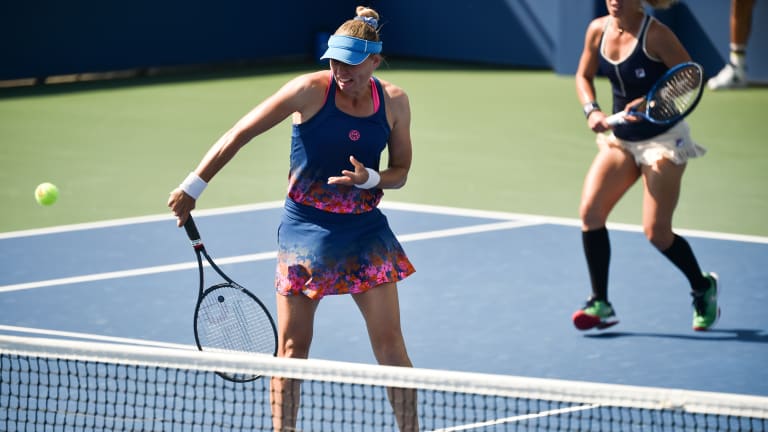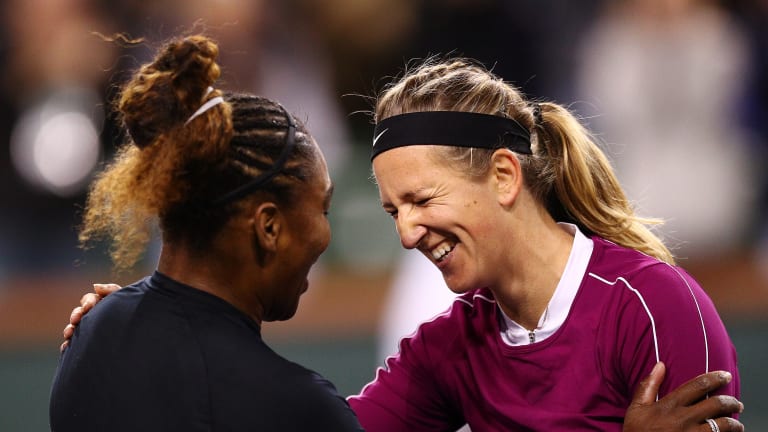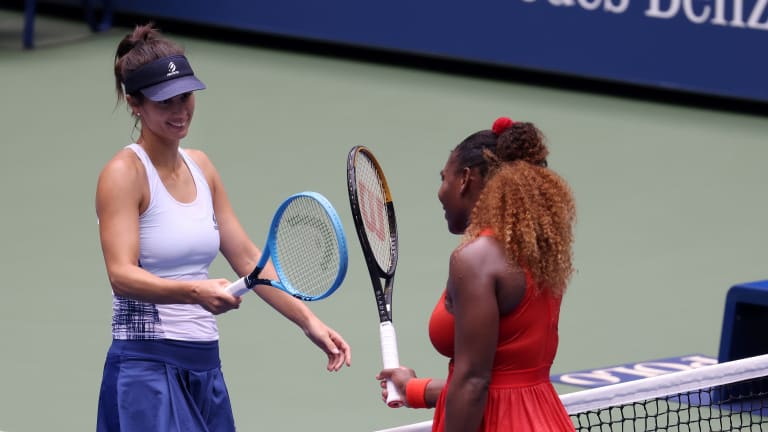US Open
Mother Plays Best: Joyful Azarenka, motivated Serena to meet in semis
By Sep 10, 2020US Open
Post-2024 US Open WTA storylines: The Age of Aryna; what's next for Swiatek and Gauff?
By Sep 09, 2024US Open
Post-2024 US Open ATP storylines: The race between Alcaraz and Sinner for No. 1 ... and more
By Sep 09, 2024US Open
Jannik Sinner’s US Open title run won’t clear the air around him entirely
By Sep 09, 2024US Open
Taylor Fritz fails in US Open final, but hope springs for American men's tennis
By Sep 09, 2024US Open
Jannik Sinner storms to second major title, defeats Swift, Kelce-backed Taylor Fritz at US Open
By Sep 08, 2024US Open
Jessica Pegula's willingness to take chances paid off at the US Open
By Sep 08, 2024US Open
Aryna Sabalenka won her first US Open by learning from her past heartbreaks in New York
By Sep 08, 2024US Open
Can Taylor Fritz beat Jannik Sinner and end a 21-year title drought? | US Open men's final preview
By Sep 08, 2024US Open
Aryna Sabalenka claims 2024 US Open title, notches third Grand Slam victory over Jessica Pegula
By Sep 07, 2024US Open
Mother Plays Best: Joyful Azarenka, motivated Serena to meet in semis
This US Open will be remembered for many unfortunate reasons, but it should be commemorated because of four women.
Published Sep 10, 2020
Advertising

Mother Plays Best: Joyful Azarenka, motivated Serena to meet in semis
© 2020 United States Tennis Association
Advertising

Mother Plays Best: Joyful Azarenka, motivated Serena to meet in semis
© Getty Images
Advertising

Mother Plays Best: Joyful Azarenka, motivated Serena to meet in semis
© Getty Images
Advertising

Mother Plays Best: Joyful Azarenka, motivated Serena to meet in semis